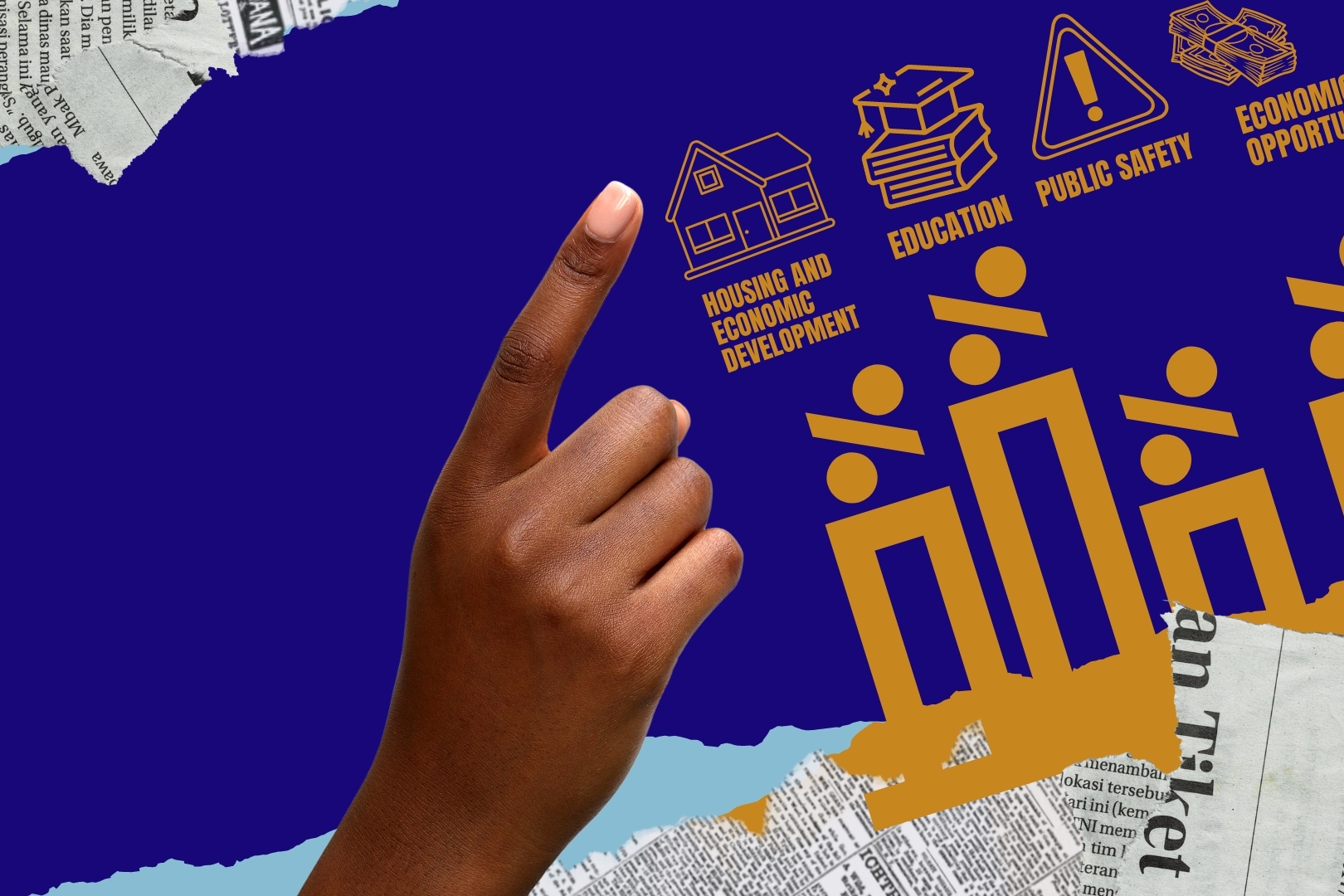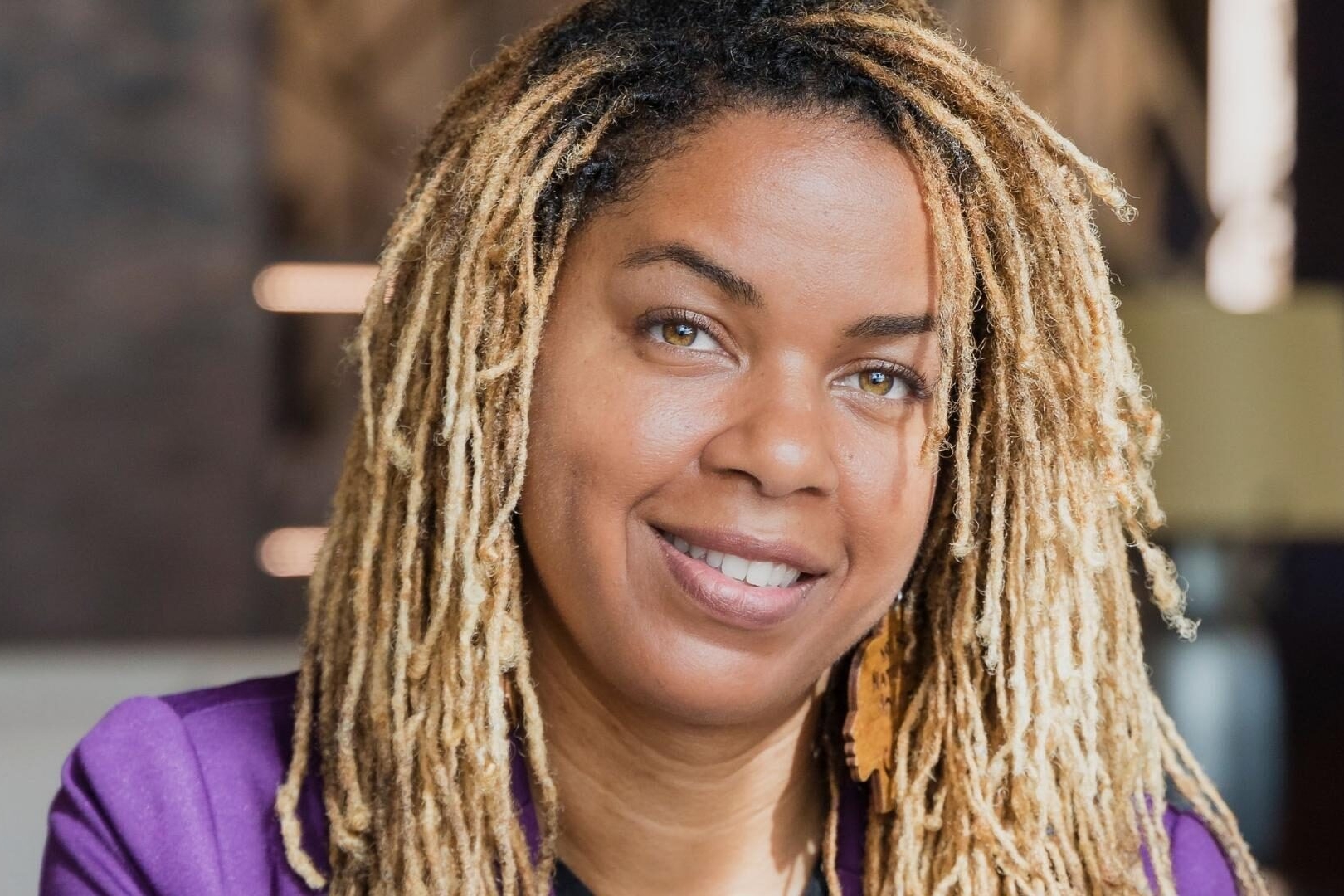"In most cases, being the youth in the room, most times, we're overlooked. The adult is supposed to know everything. But students spend most of their time in the school building, so we are the best person to advocate for what happens in our schools." -Aniah Coffee, DCPS Student
ElectED DC community catalyst and DCPS student Aniah Coffee talks about her personal journey as an advocate and voice for change in her community. Aniah spoke with ElectED DC at a recent DC advocacy workshop.
Why are you here today?
The reason that I’m here today is, as a student, to attend DCPS to learn more about how to be an advocate for those within my community, as well as become more of an advocate, not just for the kids I go to school with but those around me that may not have a voice.
Why is that important to you?
The reason that it’s important is because we’re all in a community together. No matter our racial or per se, social, political, or economic status, we’re all human at the end of the day, so it’s important to stand for each other regardless of the differences we may face.
What do you want to be when you are an adult? 10 years from now, who is Aniah?
What I want to do is be my own entrepreneur. I’m dabbling into a lot of things since I go to Phelps in DC. I study information technology using the Cisco Academy platform, and I want to do a lot of work within cybersecurity as well as being my own entrepreneur in the fashion industry with my own fashion organization where we style people as well as make our own clothes for others.
Let’s talk about your being a student in DC public schools: Tell us what you love and what you hate about DCPS.
What I love about being a student within DCPS is that it’s such a variety of different personalities you see from the kids that you meet.
When I first came to DCPS, I was in fourth grade, I left DCPS to go to charter schools and I ended up coming back for high schools just to see the differences between, “I was in a charter school majority of my life, now let’s see you… Let’s end my final chapter of schooling in being in a public high school and see the difference in the education that we received.” It opened my mind to see some of the opportunities that you get out of public education as well as, generally, some of the people that you meet.
And one thing that I don’t like about DCPS being a student is that it’s not enough opportunities for students to use student voice in most cases. Coming from a background where I was in a position where I had to use my voice for others, and some of the people around me had to realize that. When it happened, we ended up having to have a protest to basically show that we have a voice within our school and what was going on within our school wasn’t right. And it’s not fair to everybody around us that DCPS at the time was not hearing us. It really did open my eyes because DCPS does listen, but you have to show them with results that what you want to say works, so I’ll probably say that’s one thing I really don’t like. But in the end time, it’s really good.
A lot of people have said that our community leaders don’t listen to youth. It’s a one-way conversation. Do you feel that way, that adults are not listening enough to students?
I agree with that a hundred percent. In most cases, being the youth in the room, for example, most times, we’re overlooked because you have the opinion of the adult. The adult is supposed to know everything, when that’s not true in most cases. When we’re talking about our education system in schooling, the adults aren’t in the school 24/7. It’s a statistic based that students spend their lives more time in school than at home, so the best person to advocate for what should belong within our school are students because they’re there majority of the time, it shouldn’t be an outsider per se. Now, at parents and adults, they still do have a voice what goes on within their child’s school, but it shouldn’t hold stronger than what a student feels is what’s needed.
Where’d you learn advocacy? Where does this come from?
I’m not really sure if my mom was an advocate. I know from some of my siblings, I spoke to them, my father, he passed away from gun violence, and there was such a huge advocacy wave behind him trying to figure out what happened to him, getting justice for what happened to my dad. But generally, for me, in advocacy, I’ve always been the outspoken person. I always liked helping people. That’s something my mom said, especially when it comes to younger kids. I always say I’m such a big help. I love helping younger kids, I don’t know why. I just generally, it’s something that’s passionate for me, it’s really shaped my perspective, especially growing up. It’s pushing another pedestal where, when I go to college, I’m not really sure if I still want to continue with cybersecurity and computer science. I may also push for a minor in political science. Things that just make a change for my community.
… today, it was really cool to me because I got to see a lot more of the adult perspective. In most rooms like this, you see youth on, but when I first saw that it was a lot of adults when I walked in the room, I really wasn’t too sure what I was getting into because I’m typically used to seeing the more they over speak when it comes to youth sharing how we feel. But it was really more of a neutral in this case, they really wanted to hear what you’ve had to say and how we can make change while still incorporating the youth’s voice.
because we are the next change to come.
Absolutely. Anything else you want to share about the schools, about maybe what you’ve seen at school–good, bad, indifferent, and about what we can do to support youth ?
one quote that I really love to leave off people is, “If you’re not going to do it, then who?” In this case, because if no one speaks up, then nothing’s going to get done. As we know here in DC, we have a mayor that really doesn’t care for a lot of the youth in DC and it’s same for some of the council members. We don’t really see that push, especially when we’re hearing all this about juvenile crime rates going up. Just generally, there’s not enough care to what’s happening to us and our youth because no one’s listening to us. They want to make decisions like, “Hey, I see a bunch of youth doing this and that.”
The first thing that you’re going to do is like, “Hey, let’s put them in jail.” Instead of coming up with crime prevention programs or things that give youth the opportunity to do something else instead of following down the negative path.
If I was Mayor of DC sitting right here with a blank check that I could write to fund anything Aniah requests, what would you ask for?
I would ask for more creative, safe-space outlets. What that would look like is more after school programs available for students. What that could probably look like is, since I have my own fashion club at school that I got started through DCPS.
Just generally promoting programs like this that teach students some of the things that they need, even if it’s a course talking about entrepreneurship. I know a lot of the youth at DC, a lot of them are heavy into music, so what if we created a course that’s available after school? You have it available in each ward where students are able to go directly after school, and maybe, in most cases, I should say, a student can’t get transportation to that program. There’s transportation, everything is covered, food and everything, just to make sure that that child still has something to do. Because most parents in DC, they don’t make enough money to live in DC, basically. You need to at least live a decent life of being, one person is about 70,000 per year.
That’s the average. If you provided these programs while parents still have to work and keep food on the table, it’ll be not just hopeful to the parents, who will also give something for youth to be able to be inspired by and just generally learn more about themselves.
Related Posts
11/15/2023

